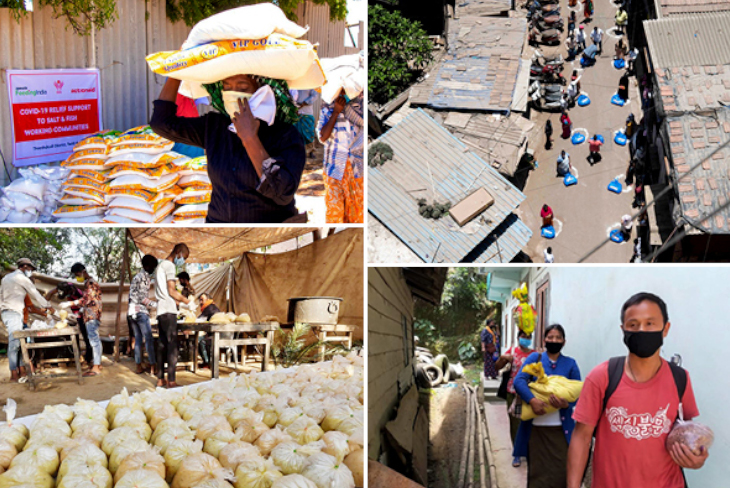We have been rigorously responding to the unprecedented humanitarian crisis brought about by the COVID-19 pandemic. We have been able to directly provide and indirectly enable access to relief materials to more than 77 lakh individuals belonging to disadvantaged communities and groups across 24 states and one Union Territory. Together with volunteers and community-based organizations, and with the help of local administrations, we have been able to reach out to those dependent on the informal economy, Dalits, Muslims, particularly vulnerable tribal groups, de-notified and nomadic tribes and other vulnerable groups.
We have also been providing inputs from the perspective of workers and vulnerable communities to the various policy processes of Union and State Governments. The National Human Rights Commission (NHRC) had set up an Expert Committee to assess the impact of the pandemic on human rights of people, especially the marginalized sections. Sandeep Chachra, our Executive Director, was invited to be on the committee to develop recommendations for the protection of rights of informal workers for the NHRC and the relevant institutions of the Union and State Governments. Sandeep has submitted advisories to NHRC dealing with the multiple vulnerabilities of informal workers amid the COVID-19 context, and the immediate and long-term support required by them. A product of efforts of teams in 16 states and several workers’ formations across the country, these were developed through consultations with workers’ formations, social organizations, experts, and informal workers themselves. They cover specific recommendations on employment generation, wages, safe and dignified working conditions, and social security for all workers. Our submissions also spoke about the need to protect workers from violence, discrimination and exclusion, and the need to ensure their access to healthcare. Besides, we shared specific recommendations on the rights and protection of especially vulnerable workers, such as de-notified and nomadic tribes, forest-dependent tribal communities, women workers, migrant workers, workers with disability, workers rescued from bondage and refugees among others.

